#but Nazis are still alive and more powerful than ever nowadays
Explore tagged Tumblr posts
Text
“10 Movies to Describe Me” tag
Hey, as I ever said, I LOVE cinema and going to the movies, watching documentaries, enjoying life by studying every nuance present on the 7th art.
Along life we have contact with a bunch of movies and references that affect our personalities, view of world, and even how we act towards some situations. Cinema is a powerful way of art, possibly influencing.
Everyone has a list of movies which influenced our personal growth. This list is all about it: 10 Movies you can use to describe me.
1 - Spirited Away
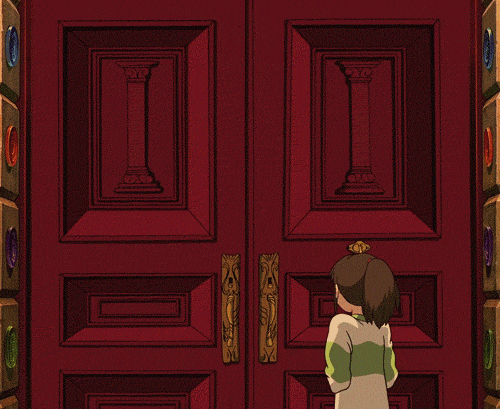
Well, I think Spirited Away was my first contact with cinematography eastern culture and made me go further in searching for more. I was 5 or 6 when I watched and fell in love with it.
Nowadays I know how to respect different cultures, have a deep interest in stories and mythologies from other countries. Thank you Studios Ghibli!
Influenced personality: Love for mythology and cultures.
2 - The Adventures of Priscilla, Queen of the Desert
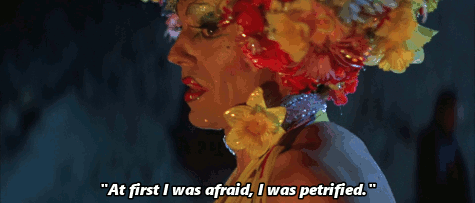
I LOVE drag queens and everything related to that subculture. I remember watching that movie as a kid, after midnight and hiding from my parents, which advised me to sleep because I had school the next morning.
Everything seemed so colourful and amazing, almost magical. A explosion of music and dresses, high heels, makeup, big wigs and dancing.
While growing up it influenced my choices on sports, acceptance, music, and love for drag culture.
RuPaul's Drag Race is part of my love for drag queens, but it wasn't the first reference. Btw, support your local queens and art.
Influenced personality: Dancing skills, LGBT acceptance (when it comes to myself, I have nothing to do with someone else's sexuality), love for drag culture and pop music.
3 - Blackfish
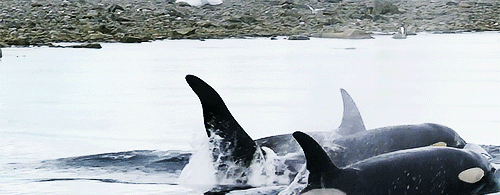
Oh ma'am, now we got to a very rough part of my personality: my HATE and INDIGNATION over zoos and aquariums.
I don't like zoos, not at all. Watching animals caged in small spaces and sad, oh boy, it makes me want to invade the whole place with a hammer and set them free.
Before watching Blackfish I didn't quite realize how bad everything was for fishes in Aquariums as well. Now, I want to start petitions against Sea World and Aquário de São Paulo.
I love animals, WAY MORE than I enjoy being around humans, so knowing how suffering is their life inside small places makes me want to cage humans and let them walk freely.
Influenced personality: Love for sea animals and thirsty for their justice.
4 - Inglorious Basterds

(This scene is one of my favourites lol)
#ILOVEHISTORYANDTARANTINO
Well, Inglorious Basterds is a very historically inaccurate movie, but I love it with all my stone cold heart. There are so many catchphrases and iconic moments.
I just love that movie. Nothing really special or meaningful.
Influenced personality: The need for kill Nazis lol
5 - The Perks of Being a Wallflower
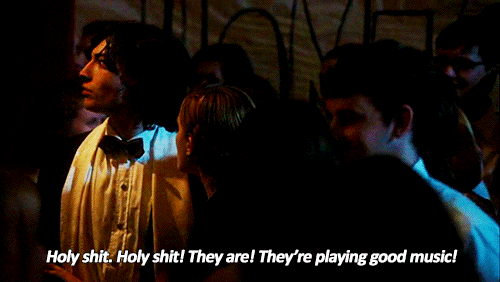
I was a very angst teenage and depressed as well, not counting anxiety on the mix. When I was 13 The Perks of Being a Wallflower aired on cinemas, and suddenly all my concerns about acting weird and not normal, compared to other girls around and whose studied with me, kind of seemed so pointless, mainly because Patrick, Charlie and Sam seemed to have so much fun, even acting quirckly and being classified as misfits.
My story has nothing to do with neither of characters, but I related a lot to them. So I think a big part of me came and flourished after watching The Perks of Being a Wallflower.
Also, it taught me the importance of speaking how you feel, therapy and trusting people enough to tell them when something wrong is going on.
The book is also one of my favourites, so I’m not impartial when it comes to The Perks of Being a Wallflower
Influenced personality: Not afraid of being myself, fight for human basic right of having mental health treatment guaranted and embracing my quirk personality.
6 - Erin Brockovich
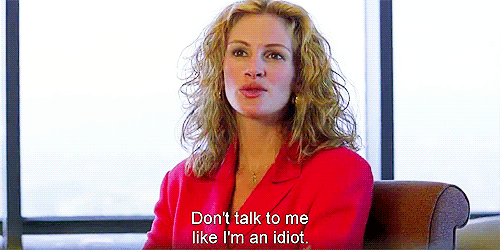
Everyone who knows me well enough, is VERY aware of how independent and self-suficient I am. I hate depending on people for completing tasks or doing stuff, so most of the time I try to learn do things all by myself. It’s something natural inside of me, partly because I don’t get lonely, so the idea of depending on someone to anything makes me cringy.
Erin Brockovich is a movie I watched when I was 12 and the way Erin acted towards everyone, giving priority to her life and kids, not caring about everyone else’s opinion, it made me root to be independent like her (except for the kids and struggle to find a job). Erin exhales big dick energy, also the ending made me aplaud the movie (even tho I was alone at home watching it).
Influenced personality: I learnt how to classify my priorities, also improved my confidence on how I act, since Erin isn’t afraid of achieving things and proving her point, even if everyone else is against and won’t believe her.
7 - Lilo & Stitch
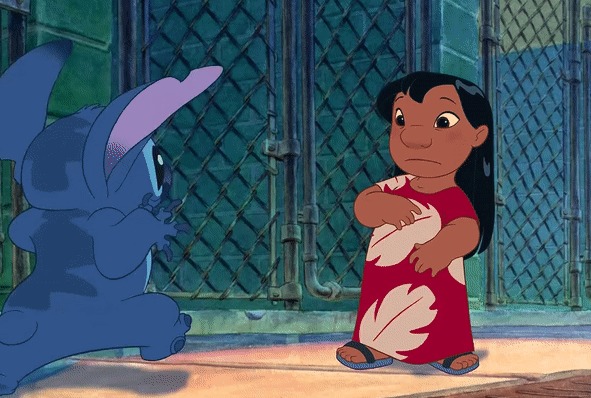
I think every single living human alive had at least one movie, you know this one movie, which you obsessed during your childhood. It doesn’t matter the genre, you watched it nonstop and pissed off your whole house with how repetitive movie marathons seemed to get with you, since everytime you picked whatever you were about to watch, your choice was quite predictable.
The movie I obsessed during my childhood was Lilo & Stitch (also Scooby Doo, where do you think I learned how to copy someone’s fingerprint by using pore cleanser and powder?).
As I mentioned a few items ago, I was a misfit and it played a big part on my life, being excluded from parties, playdates and games during P.E was common. It bothered me, but everything changed when we adopted my first dog, a dachshund called Xuxinha. We were Lilo & Stitch, whenever people treated me badly at school, I knew that she would be waiting for me at home.
Xuxinha passed away in 16th February 2017, and I still miss her.
Influenced personality: It helped understand that people are douchebags, but as long as I have my dog/sister at home to hold and distract me, then nothing else matters. I learned the importance of surounding yourself with people who cares about your well-being, not caring specie, ethnicity, etc.
8 - Wonder

I don’t think this item requires a lot of text to describe why I felt influenced by it. Watch the movie and let’s sob together.
Influenced personality: Learned why appearance means nothing, and everyone goes through some struggle, so always be there for people who cares about you as much as you do about them. Also, always stand up against bullying, it may look like a joke now, but it can be the trigger for fatalities.
9 - Spotlight
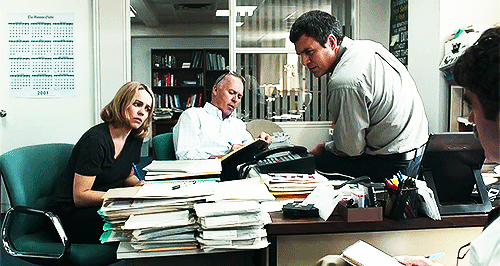
I study Social Communication: Journalism, that’s what I’ve been wishing to do and want to be in the future. Even tho I decided what I wanted as my career YEARS before the release of Spotlight, it helped me define which kind of journalism I wanted to follow: Investigative.
It feels like I just made 4 out of 2+2, considering the fact that I love detective stories and would love to be a detective myself, but watching and acknowledging that all the investigation and accusations were based on real facts, oh Ma’am, I can’t even describe the thrill consuming my mind only by imagining what it feels like to be involved journalistically in an investigation.
Influenced personality: My PASSION for investigative journalism.
10 - The Imitation Game

Last but not least: The Imitation Game.
Well, I constantly get annoyed on how biased our society is, for real, and whenever it happens I write poems and texts and protest, and piss off a bunch of people by only talking about a situation of inequality. When I first watched The Imitation Game the whole Alan Turing being castrated and killing himself because of homophobia and a VERY, I repeat, VERY narrow-minded society, it PISSED OFF THE HELL OUT OF ME, and I used this rage during a full semester of college paper works.
I named a group after Alan Turing and our semester project was basically about people being biased and killing genius because they cannot look further from their own bellybottoms. I won a “Oscar de Jornalismo”, which is the award that happens every six month in my college, prizing the best works from the semester.
It still makes me so angry to imagine what Alan Turing could had done if he lived for at least 20 more years.
Influenced personality: Well, it made me channel my rage about a situation and helped me to understand why we should discuss homophobia, racism, wars, etc, even harder now. Watching the world following the path for making the same mistakes all over again is frightening, and only history can help us.
- x-
It has potential to be a tag, so I’ll tag some people I want to know what movies inspired them. You don’t have to make a whole long ass text about your choices, just sharing is enough :)
@ohmydearmoonchild @okayycalum @emerson-moonchild @btsqualityy @theburntwaffle
#movies#cinema#hashtag#influences#personality#art#we're what we absorb#we are art#the imitation game#alan turing#spotlight#wonder#lilo & stitch#erin brockovich#the perks of being a wallflower#inglorious basterds#blackfish#the adventures of priscilla queen of the desert#spirited away
140 notes
·
View notes
Link
Copyright semicasual
Real-deal Men In Black. Nothing to see here, move along.
Summary If the Sleepers were based in the USA, had a larger budget, and intimidating black suits, they'd be the UIB. The Unusual Incidents Bureau is a secret government organization with one goal: to make sure that the occult underground never goes public or does anything else to threaten the peace. No unearthly forces will ever threaten Uncle Sam while the UIB is on watch. History In the early 1940's, when the States was just starting to enter into the war against the Axis powers, Allied intelligence began to find more and more reports of Hitler's interest in the occult, suggesting that some secretive group of people with supernatural powers were supporting the Third Reich. Of course, conventional wisdom in the European occult underground today is that several of the top members of the Nazi party (people disagree on who, but Himmler is usually at the top of the list) were actually phobomancers, but at the time, no one really knew for sure what Jerry's deal was, and so the secret services of Britain and the USA decided to form a special group whose sole purpose was to investigate the supposed supernatural abilities of the German forces and find a way to counter them. The reason why you won't find this in any history book is party for reasons of national security, but mostly because the unofficial committee ultimately didn't help much with the war. The old underground truism that a knife in the heart works as well on an adept as it does on a normal person (usually) applies just as well to bullets, and the combined armies of the allies were more than enough to smash the German army and kill off most of their phobomancer support in the process. Mostly what the committee did was flail around trying to figure out how magick worked, with only the faintest clue what they were doing, and didn't have a concrete idea of what adept magick was or how to counter it until October of 1944, by which time their ability to contribute was fairly negligible. The head of the committee was a man named Edward Calvert. Calvert was a charismatic, driven man whose experiences with the occult during the war were unquestionably life-changing. He'd seen crazy people do terrible things to eachother for the sake of sanity-shattering power, and though he could do little himself to stop the Reich, his growing awareness of the supernatural prompted him to ask President Truman for permission to start his own, super-secret department: the Unusual Incidents Bureau. Initially, the stated mission the Bureau was to prevent Communist subversion via witchcraft, but later on their mission expanded to its current state. Calvert and his crack team of experienced field agents were quite skilled and rooting out and killing magick-users in their day, but the occult underground isn't something that can be easily contained. After decades of trying and failing to stomp out occultism in the USA for good (and accidentally starting a lot of urban myths in the process), Calvert decided that the Bureau's real goal should be to keep a lid on the underground, and study the nature of magick until they could find a way to finish it. Privately, Calvert has a goal of his own, one that he formed in the 1970's after a chance encounter with the Comte St. Germain: to foil the ascension of Invisible Clergy members in the hopes of stopping the world from being destroyed/recreated. Calvert's understanding of the Statosphere is fairly limited, but he sincerely believes that humanity hasn't developed to the point where they can be entrusted with making a new universe. Nowadays, the Bureau does the work the Sleepers wish they could do: hunt down and kill troublemaking adepts with impunity, and then blame and public fuss on swamp gas, or whatever. Of course, undergrounders will tell you that, often as not, they'll capture magickers or unnatural creatures alive to dissect them in a lab somewhere. Only the Bureau could tell you for sure, and they tend to respond negatively to close questioning. Resources It's a small group: somewhere between 60-80 members, mostly working out of an undisclosed location on the East Coast. They do, however, have a federal budget that they spend on military-grade weapons and surveillance gear. They recruit people by singling out anyone who tries to go public with any discoveries of an occult underground: if they're not completely crazy (and not adepts or avatars themselves), and they're willing to keep quiet in exchange for a decent federal salary, they receive some basic training and get set to save the world for supernatural threats. As such, their members tend to balance open-mindedness with mental stability, a winning combination in the underground, and they're always well-equipped. Plus, the Bureau has gotten very adept at pretending to be FBI or CIA and using illusory authority to shanghai local authorities into helping them find things and cover things up. They've also got a sizeable and ever-growing collection of occult lore. They take a decidedly empiricist approach to understanding the supernatural, which isn't always practical, but at least their library is better-organized than most. Last but not least, they've got Ed Calvert. The man is over 100 now, but still manages to keep the bureau running from behind his desk and several people who present themselves as the Director of the bureau in public. His body is withered, but his mind is sharp, and his force of will has kept him alive and active long past his sell-by date.
1 note
·
View note
Link
THE BASHING OF BRAHMINS AND INDIA’S CASTE-SYSTEM HAS AN AGENDA Common people in the west know hardly anything about India. But one thing they all know: India has an ‘inhuman’ caste system, which is an important feature of their religion, Hinduism. Most also ‘know’ that Brahmins are the highest caste, which oppresses the lower castes, and worst off are the untouchables. I learnt this already in primary school, but knew nothing at that time about the concentration camps of Nazi Germany only a few years earlier or about the atrocities of slavery or colonialism. Yet the Indian caste system with Brahmins as villains was part of the curriculum in Bavarian schools in the early 1960s, and it still is today: some time ago I asked three young Germans in Rishikesh what they associate with Hinduism. Their prompt reply was, “caste system”. Surely, they also had learnt that it was most inhuman. In all likelihood, all over the world school children are taught about the ‘inhuman’ caste system. Why? There is likely an agenda behind it. Yes, the caste system exists, and untouchables, too. And it exists all over the world. Curiously, ‘caste’ is Portuguese for class. It is not even an Indian term. The ancient Vedas mention four varnas – Brahmins, Kshatryas, Vaishyas and Sudras, which form the body of society, like the head, arms, thighs and feet form the body of a human being. It is a beautiful analogy which implies that all parts are important. True, the head will be given more respect, but will you ignore your feet? Not everyone is made for intellectual work, fortunately, because a society without farmers, traders, workers won’t be possible. All have their role to play. And in future lives, there are likely to be role reversals. Varna was not hereditary originally. It depended on one’s predominant guna (quality of character) and one’s profession. The job of Brahmins was specifically to memorise the Vedas and preserve them absolute correctly for future generation. They had to have predominately Satwa (pure) guna and had to stick to many more rules for purity than any other caste. Brahmins were the guardians of the purity of the Vedas. So it is understandable that they would not touch those who for example remove the dead bodies of animals or clean the sewers, though a society needs people, who do these jobs, too. In the west, people also wouldn’t shake hands with them. But no issue is made out of it. Due to their satwa guna, Brahmins were least likely to be abusive to other groups in society. Usually it is the group which considers itself socially just above another group, which looks down on those lower. This trait is there in all societies, but it is true, that in India, unfortunately over time, the four varnas were inherited by birth. There are today many Brahmins, Kshatriyas, Vaishyas, Sudras, who do not follow their dharma any longer and therefore should not consider themselves as belonging to their inherited varna. But why is the structure of the society in India constantly decried, when nobody accuses for example the nobility, the highest ‘caste’ in the west, that it does not mingle with workers and won’t live in their neighbourhood? Why is nobody upset that the British allowed only ‘whites’ into the club of Madikeri town in Karnataka and probably all over the country, as an old Indian gentleman told me? If I remember right, he said that the sign at the club read, “Dogs and Indians not allowed”. Why is nobody upset that the agriculture policy of the British Colonialists starved some 25 MILLION Indians to death? 25 million men, women and children slowly dying because they had nothing to eat in a country that was one of the richest before the British took over… There are terrible pictures on the net of Indians only being skin and bones, barely alive. Why is nobody upset that the British, after slavery was abolished, sent indented labour from India all over the world in cramped boats, where a big number died during the journey already (and were spared the torture in the sugarcane estates)? Why nobody talks about what the Muslim invasions did to Hindus and especially to Brahmins? How cruel they were? How many Hindus were killed or made slaves? How many Hindu women committed mass suicide by jumping into fire so that they won’t fall into the hands of the Muslim troops? Nowadays, due to ISIS we can well imagine what happened then, yet the Leftists and even ‘respectable’ British Parliamentarians are not concerned with all this. They are concerned with the ‘most inhuman caste system’ of India. It can be safely assumed that the colonial masters tried to drive a wedge between the castes by ‘fixing’ the former fluidity of varnas in their census from 1871 onwards. And today, their democratic successors, though without political power in India, try to drive a wedge with the help of manipulative media and even parliamentary legislation in their own country. My point is: what Brahmins did by segregating from others or even snubbing others is negligible in comparison what Christian colonialists and Muslim invaders did. So why are the so-called atrocities of the caste-system so hyped? The reason may well be to divert the attention from those who actually should feel guilty what they did and still do to India. It’s not the Brahmins. Many of them suffer today, mainly due to reservation and, though poor in many cases, by being excluded from benefits which are given to religious minorities or lower castes. But this is not the only reason why the caste system and Brahmins are being bashed worldwide. Another important agenda is to shame Brahmins, to make them feel guilty about their forefathers and to make them reluctant to follow their original Dharma of learning and teaching the Vedas. The goal is to make Vedic knowledge disappear in India, because it poses a danger for Christianity and Islam. It can easily challenge their so called “revealed truths”. Vedic knowledge makes sense and is therefore the greatest obstacles for Christianity and Islam to expand over the whole world. Unfortunately, a lot of Vedic texts are already lost. The former Shankaracharya of Kanchipuram, Sri Chandrashekarendra Saraswati, says in his book “The Vedas” that out of 1180 Shakas, into which Veda Vyasa divided the 4 Vedas some 5000 years ago, only eigth are still in use. (Just wondering: would a search in England, Germany and other countries rediscover some of this treasure? ) It is about time to stop this Brahmin bashing and stop portraying the Indian caste system as the worst that has ever befallen humanity. It sounds so fake, especially, when ISIS gets neutral treatment by just mentioning facts, like, “ISIL burns 19 Yazidi women to death in iron cages because they refused to have sex with fighters” without any emotional colour or condemnation. Some time ago, I saw an old Brahmin couple in a temple in south India. They had dignity, but were very thin. When Prasad (sacred food) was distributed, they were in the queue before me. Later I saw that they joined the queue again…. It was in all likelihood due to poverty. Brahmins don’t need to feel guilty about their forefathers. They can be proud of them, because it is only thanks to them that India is the only country that has preserved its precious, ancient wisdom at least partly. Yet others should indeed feel guilty, but those others are brazen and won’t. They rather vitiate the atmosphere with unjustified hatred for Hinduism and anti-Brahmanism. By Maria Wirth http://ift.tt/2DO9xSA
0 notes
Text
fighting
today i had this discussion with my friend that had just watched buttler of the white house, (we call it like that here in Brasil so sorry if its wrong) m we got into talking abt how the world is messed up n stuff... Guyz... The World is messed up, but it used to be so, man, SO much more, n sometimes we still drop the ball electing Trump, adoring people like Bolsonaro, the nazi protests... Well, basically stucking ourselves in the past in letting hate, ego, individualism n pride get in the way of Love, Peace, Moral n Ethical Values. But there were so many people that sacrificed their whole lives n existences to make a change, to try to preserve Love n the good will of humanity in order to increase the human development such as in Moral Values as in Intellectual, but not only the big names on the History Books, cuz, they werent alone, no revolution can be done by ourselves, im talking abt ALL THOSE PEOPLE, every single one of em changed the world, we can deny it bcs u cant know what wouldve happenned if one werent there, no matter how statistics can ensure something, never 100%, n the VERY LEAST we can do to honor their sacrifices, is to preserve what theyve conquered for our good, n not to throw away their legacy, their love, their strength, n to believe, at least we have to believe, "but its v unlikely", LOOK do u think it was probable that slavery would end? do u think it was probable that we would have democracy? do u think its probable Obama wouldve ever been president? do u think it was probable that women would have nowadays the right of even being considered as a human being n that Dilma would ever be president?... Unfortunately no. NO AWAY, but they still had to believe, all those people, cuz that was the very least they could do, they did it bcs they didnt have nothing left to lose, they knew that was more important than their own lives, that the future was more important, WE were more important than their lives for them, so WE HAVE THE OBLIGATION TO DO SOMETHING ABT IT N NOT TO LET THEIR LIVES BE IN VAIN. We see a lot of shit nowadays, people dont know but THERES STILL GOOD PEOPLE, if there wasnt, there wouldnt be so much suffering, people would just find it normal, BUT THEY ARE THERE, we just arent as famous as Sócrates, Ghandi, Mandela, Marthin Luther King Jr., Paramahansa Yogananda, (im sorry i dont know much feminine names, im v ashamed abt it, i have just realized so ill make a post abt revolucionary women) bcs the world wants u to think eitheir that were corrupt or crazy like they did with those names, or that ure alone n that they dont exist, BUT WE ARE STILL ALIVE. Who are we tho? Theyre just people who are fucking tired of leaning on hate to defend ourselves from hate, leaning on paranoia to defend ourselves from every disguise of this pretensious world that opress the love n human development in moral intellectual n spiritual values. WE WANT LOVE.
n yeah, i putted lots of tags for the first time cuz this time... i wanna exist, n i wanna do something to honor the priviliege of existing n existing in better conditions id have years later bcs of all the love n the future that some people didnt give up on, n i wont either, i cant.
"with great powers, comes great responsabilities"
0 notes